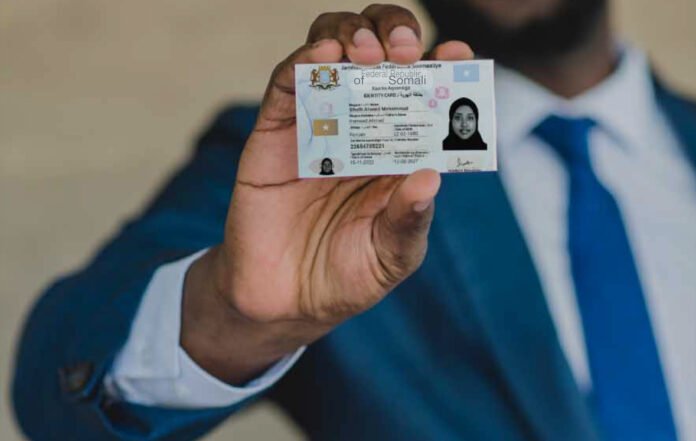By Horn Africa News
Mogadishu – Strengthening financial security and restructuring the banking sector, the Central Bank of Somalia announced
that all Somali citizens must now present a valid National Identification Card (ID) to access banking services.
The policy — developed in coordination with the National Identification and Registration Authority (NIRA) and the Somali Bankers Association — will be piloted in the Banadir region, including the capital city Mogadishu, before being extended nationwide.
Under the new regulation, customers must present their biometric national ID to open accounts, conduct deposits and withdrawals, and apply for credit or other financial products. The Central Bank said the move is designed to tackle widespread use of counterfeit documents, curb illicit financial activities such as money laundering, and enhance transparency in the country’s banking sector.
“This is a critical milestone in Somalia’s path toward financial modernization and national security,” said Central Bank Governor Abdirahman Mohamed Abdullahi. “The national ID will provide a single, verifiable identity standard across all financial institutions.”
The policy forms a key pillar of Somalia’s National Transformation Plan, passed in March 2025, which aims to strengthen institutions, build public trust, and foster sustainable economic growth after decades of instability.
Somalia had been without a functioning national identity system for over 30 years following the collapse of its central government in 1991. However, since September 2023, the federal government has begun issuing biometric ID cards in several regions including Mogadishu, Galmudug, Hirshabelle, and Lasanod.
Prime Minister Hamza Abdi Barre praised the national ID rollout, calling it a transformative initiative that addresses long-standing governance and development challenges. “This will improve electoral processes, national security, and access to economic opportunities,” he said.
President Hassan Sheikh Mohamud also endorsed the policy, describing the national ID as “the backbone of national security.” He noted that the absence of a reliable identification system has hindered Somalia’s efforts to combat terrorism, deliver essential services, and foster economic resilience.
The new banking ID requirement is expected to strengthen customer due diligence, reduce fraud, and position Somalia’s financial institutions to integrate more effectively with regional and global banking systems.
As implementation begins, authorities are urging citizens to register for their national ID to avoid service disruptions and participate in the country’s push for digital and economic transformation.





